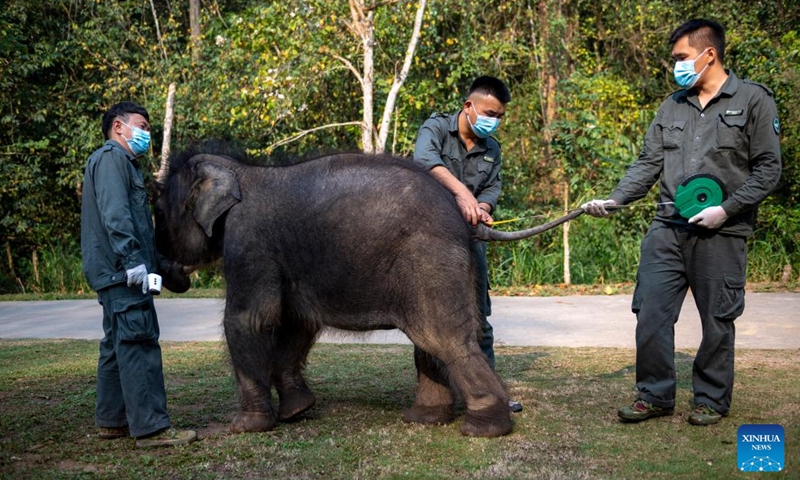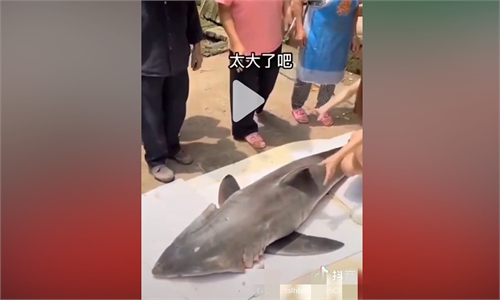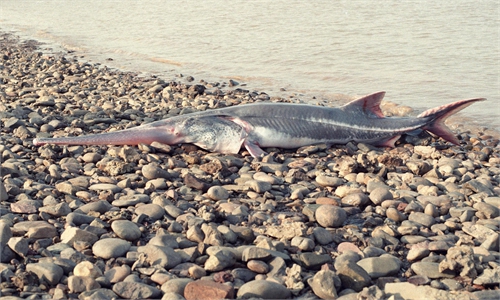
Wildlife conservation workers measure the tail of Asian elephant "Longlong" at the Asian Elephant Breeding and Rescue Center in Xishuangbanna Dai Autonomous Prefecture, southwest China's Yunnan Province, March 15, 2022.(Photo: Xinhua)
A three-month joint campaign earlier this year to combat illegal wildlife trading nationwide dealt with nearly 12,000 cases, effectively curbing the practice and fully consolidating the achievements of the ban on consuming wildlife and the 10-year fishing ban in the Yangtze River, the National Forestry and Grassland Administration said on Tuesday.
Focusing on the whole chain of illegal wildlife trading including hunting, collection, artificial breeding, sale, purchase, transportation, sending and delivery, consumption, operation and utilization, import and export, the campaign jointly launched by 11 government bodies busted more than 14,000 criminals, who were dealt with between February 15 and May 15.
The three-month campaign also intensified efforts in the crackdown on smuggling and illegal trading of elephants, rhinos, tigers, leopards, pangolins and other key species. A total of over 270 cases related to these species were dealt with, with over 13,000 items made of ivory, rhino horn, tiger, pangolin and antelope horn confiscated.
According to the administration, more than 130,000 wild animals and plants were confiscated in the nearly 12,000 cases, including over 4,300 administrative cases and over 7,500 criminal cases during the thee-month campaign.
Besides, more than 140,000 pieces of products made of wildlife animals and plants that weighed nearly 200,000 kilograms, 97 tons of wood, over 46,000 pieces of illegal hunting and fishing gear and illegal gains of 56 million yuan ($8.3 million) were confiscated, with penalties of more than 100 million yuan handed down.
Including over 3,600 cases related to the Yangtze fishing ban that were dealt with, the latest campaign has effectively deterred illegal acts of destroying wildlife resources.
According to an official from the National Forestry and Grassland Administration, the campaign exposed some problems in wildlife protection such as the lagging behind of relevant support systems for law enforcement, imperfect mechanisms, difficulty in supervision of online illegal wildlife trading and insufficient publicity and education.
In the next step, the authorities aim to strengthen supervision over the online market and prevent and crack down on illegal trading of wildlife on the internet.
A recent case that reflected these problems in wildlife protection and that sparked a nationwide outrage on illegal wildlife trading was when a Chinese internet influencer, known by her online pseudonym Tizi, livestreamed herself cooking and eating a great white shark, an endangered species, in Nanchong, Southwest China's Sichuan Province in mid-July.
The food vlogger is also reportedly suspected of eating other endangered animals such as giant salamanders, crocodiles and peacocks, and other suspects involved in the case are still under investigation.





